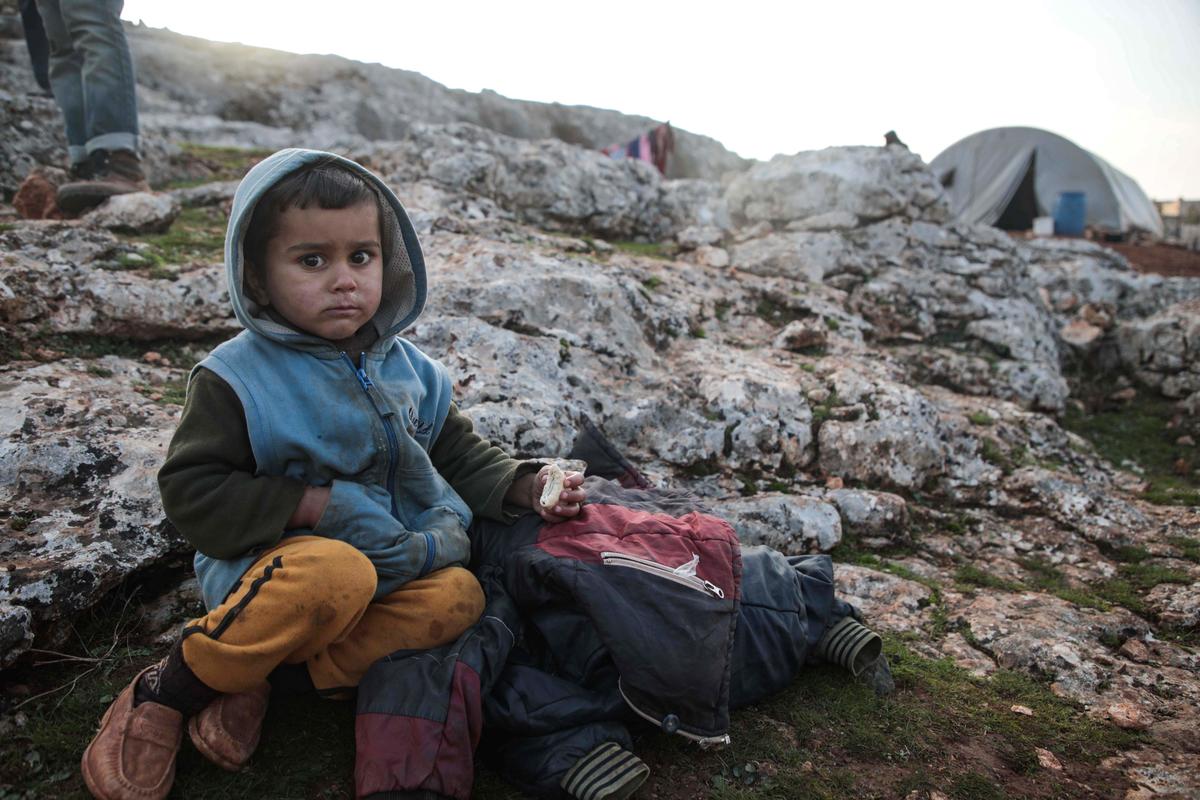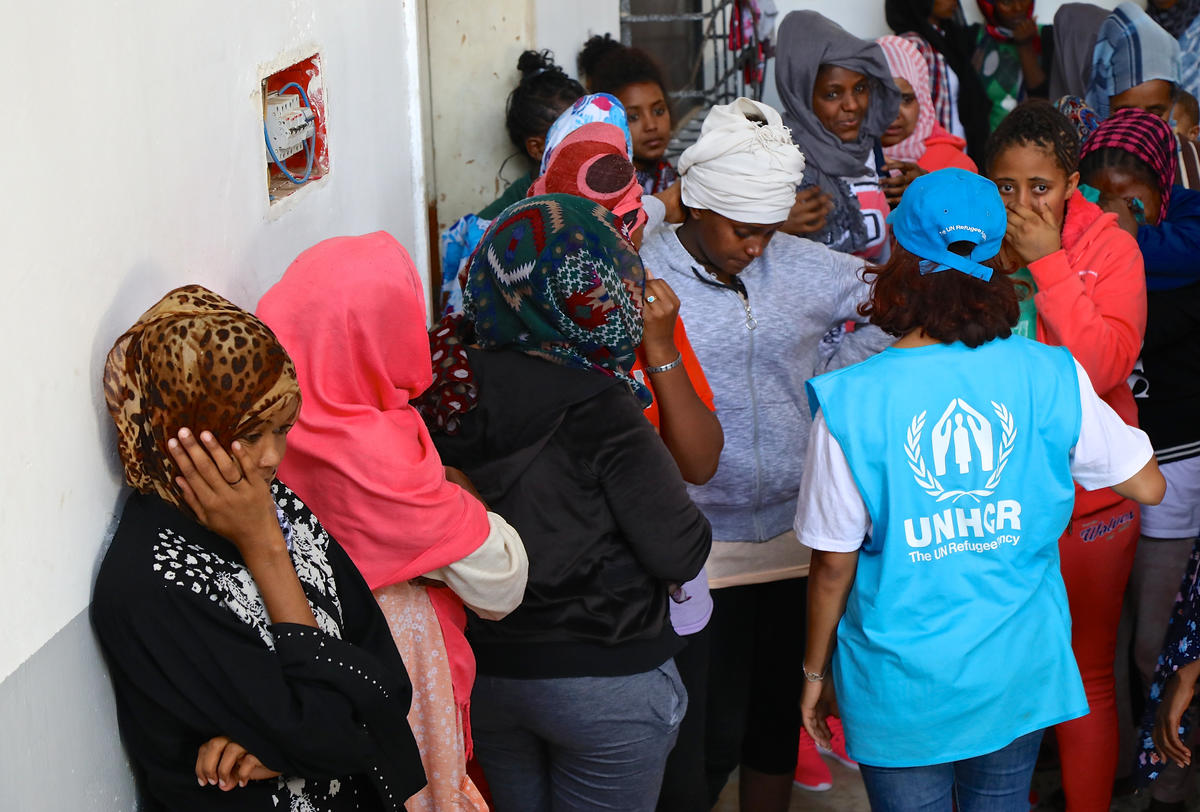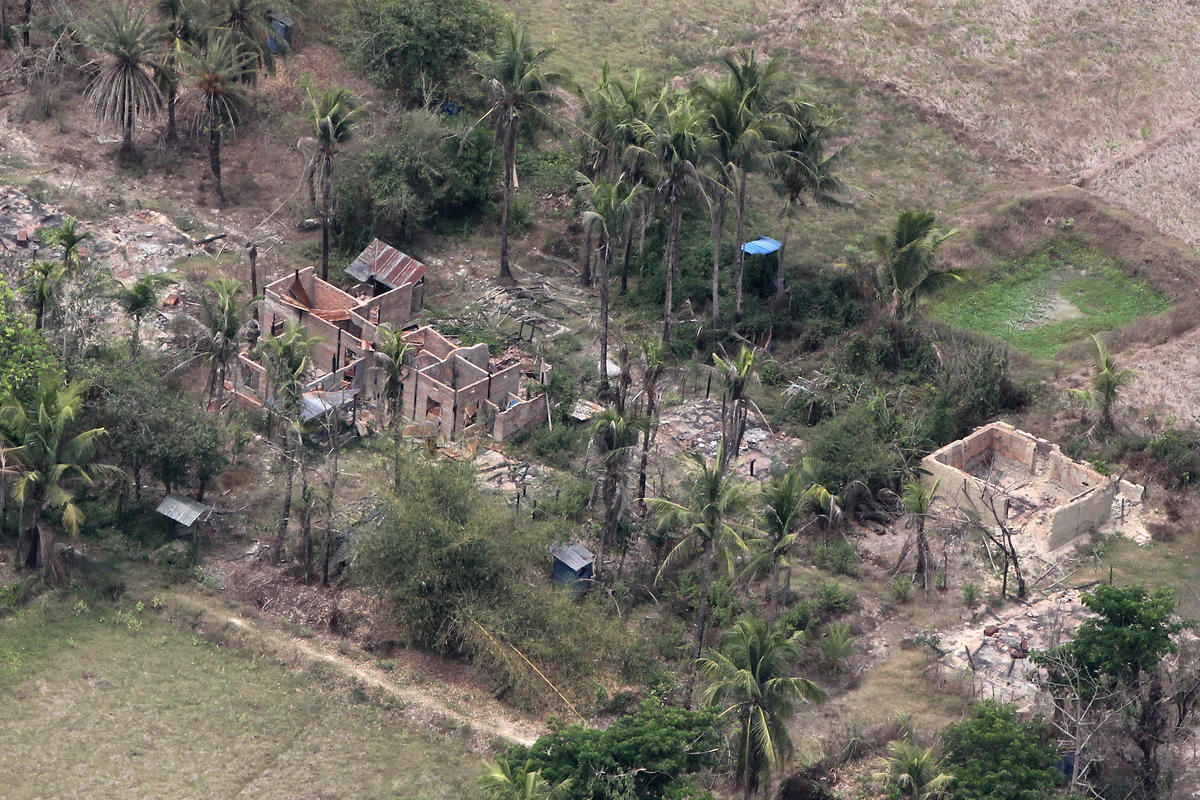A 'tsunami' in the Democratic Republic of the Congo every six months: Guterres urges help for one of the world's most under-funded emergencies
A 'tsunami' in the Democratic Republic of the Congo every six months: Guterres urges help for one of the world's most under-funded emergencies

BERLIN, Germany, May 18 (UNHCR) - U.N. High Commissioner for Refugees António Guterres has issued an urgent plea to the international community to increase support for the desperately under-funded emergency in the Democratic Republic of the Congo.
In his first official visit to Germany since becoming High Commissioner last June, Guterres said that the human cost of the conflict in some parts of the Democratic Republic of the Congo (DRC) - a country the size of Western Europe - continued to be much higher than in other emergencies.
"This conflict is taking more human lives than the tsunami; we have a tsunami in the Congo every six months," Guterres said at a press conference Tuesday with the German Minister for Development Cooperation, Heidemarie Wieczorek-Zeul.
Every day in the DRC, 1,200 people die from conflict-related causes. More than 20 per cent of children die before their fifth birthdays, and one in 10 die in the first year of life. UNHCR's programmes, along with those of its U.N. partners, are desperately under funded. The refugee agency's 2005 appeal for the repatriation and reintegration of Congolese refugees has received only 14 per cent of the necessary funding, with only $10.6 million received out of $75 million required. Meanwhile, of $14.7 million requested for UNHCR's programme for internally displaced Congolese, donors have given only $3.2 million.
Guterres also stressed the need to support the new peace agreement in Darfur.
"Darfur is the epicentre of an earthquake that is threatening the whole region," he said. "If we do not solve the problems in Darfur, the whole region will not find stability."
He urged the international community "to make sure" the new agreement on Darfur is implemented.
UNHCR recently had to scale back its programme for the internally displaced in Darfur because of growing insecurity. In neighbouring Chad, the agency is running a large-scale relief and protection programme for more than 200,000 Sudanese from Darfur who live in refugee camps there.
During the press conference, Minister Wieczorek-Zeul highlighted long-term activities that often receive little public attention.
"We have entered a strategic partnership with UNHCR," the minister said, noting that a common aim for the German government and UNHCR is to ensure that humanitarian relief and reconstruction efforts are linked to long-term development assistance.
She cited Liberia as an example of a success story where Germany has played an important role as a supporter of the large-scale voluntary return programme. Under this programme, UNHCR has helped more than 314,000 uprooted people return home, and all the camps for the internally displaced have been closed.
At a separate press conference with Foreign Minister Frank-Walter Steinmeier on Wednesday, Steinmeier emphasized the importance of the partnership between UNHCR and the German government.
"For Germany, UNHCR is the most important partner in humanitarian aid," he said. "About 20 percent of German humanitarian aid is carried out through UNHCR."
Guterres said, however, that Germany and other EU countries were not only important as major donors who fund UNHCR through voluntary contributions, but as countries which maintain strong domestic asylum systems for refugees. He pointed to the sharp decline in the numbers of refugees and asylum seekers in Germany as well as other industrialised countries.
"We have high hopes for the German Presidency of the European Union [starting in January 2007]," said the High Commissioner, who returned to Geneva on Thursday. "Europe must remain a space of asylum."
By Andreas Kirchhof in Berlin, Germany









